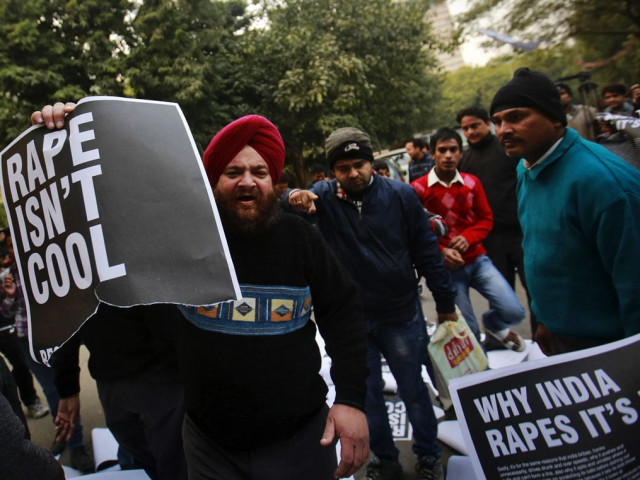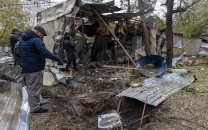First Delhi gang-rape verdict due in juvenile case
The trial of four adult suspects continues but is expected to wrap up in the next few months.

File photo of people in New Delhi protesting against the gang rape. PHOTO: REUTERS/FILE
A juveniles' court in the capital has finished hearing the case of a teenager, aged 17 at the time of the crime, who faces a maximum sentence of three years in a correctional facility if found guilty.
The sentence is likely to cause further outrage in a country attempting to turn a rising tide of violence against women and which has passed a new law toughening sentences for adults convicted of sex crimes.
The victim's family led calls for the teenager to be tried as an adult, alongside five men initially arrested over the savage crime on December 16, which led to weeks of protests in the capital and elsewhere.
"We want to be reassured by the government that my rights to justice are protected. In this case the accused is hiding behind legal loopholes in the system," the father of the 23-year-old victim told The Hindu newspaper earlier this year.
The trial of four adult suspects continues but is expected to wrap up in the next few months, with the men facing a possible death sentence if convicted of rape and murder.
The fifth adult, alleged ringleader Ram Singh, died in jail in an apparent suicide.
If found guilty, the juvenile can be sent to a correctional facility for a maximum three-year term, which includes the time he has already spent in custody while waiting for the verdict.
Anant Kumar Asthana, a Delhi-based lawyer who defends juveniles, explained that "the idea behind the provision is that three years is sufficient time to reform a child".
"The institutionalisation of a child is a last resort, and the idea is to do it for a minimum amount of time... since institutionalisation can often impact a child negatively," Asthana told AFP.
Criminal charges against staff at a number of juvenile homes last year have highlighted what activists describe as a pervasive culture of violence that begins with carers abusing wards and ends with older children assaulting younger children.
Shahbaz Khan, co-founder of Haq: Centre for Child Rights, which has provided counselling to the juvenile in the Delhi gang-rape case, told AFP the services provided in homes are usually inadequate.
"Counselling services are very poor. Staff are paid very little and are not at all eager to work with these children," Khan said.
"Some homes will offer tailoring classes or cooking classes, but these kids are damaged, they need mentors. The law on juveniles has all these provisions, but the reality is something else," he said.
A government panel set up after the Delhi gang-rape to recommend changes to sex crime laws rejected calls to lower the age at which people can be tried as adults from 18 to 16.



















COMMENTS
Comments are moderated and generally will be posted if they are on-topic and not abusive.
For more information, please see our Comments FAQ